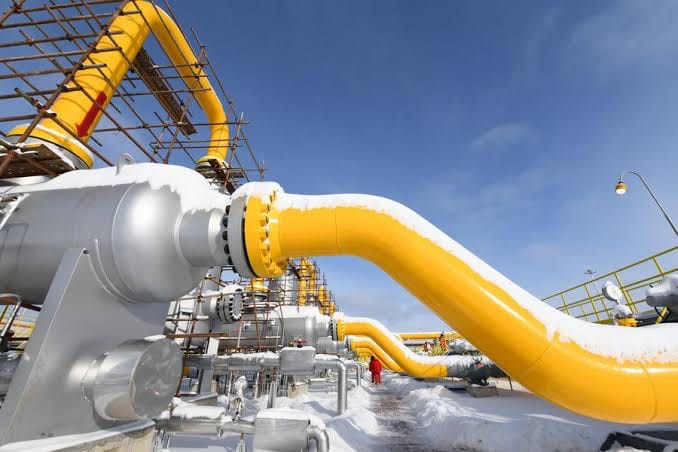Russia is proposing a new route to deliver oil and gas to China alongside a planned gas pipeline, President Vladimir Putin said on Friday.
Putin said that both Russia and China confirmed their interest in moving forward with the proposed gas pipeline, Power of Siberia 2, during his two-day visit to China.
“Moreover, it’s possible to lay both a gas pipeline and an oil pipeline in the same corridor,” Putin said, reviving an idea that was discussed back in 2018.
However, Putin acknowledged that other options exist for supplying energy to China, including tankers traveling along the Northern Sea Route via the Arctic.
“All options are possible, they are all acceptable and economically feasible,” Putin said at a televised news conference. “It’s necessary to choose the best one. I am sure this work will also be completed.
The urgency for Russia to finalize the Power of Siberia 2 project has grown significantly since the war in Ukraine began. Russia is looking to ramp up gas shipments to China in order to make up for the lost revenue from European gas exports.
While Putin conveyed an optimistic outlook on the project’s future, there is still no signed agreement between Russia and China to proceed with construction. Russia’s energy point man, Alexander Novak, said in a separate interview that a contract is expected to be signed soon.
Russia Seeks to Replace Lost European Gas Sales
According to Putin, the complex project involves determining a price point that is agreeable to both parties. He emphasized that China’s growing economy necessitates a steady supply of energy, and Russia is the most reliable supplier. An additional benefit of the pipeline would be its immunity to Western sanctions.
“Nobody can get in the way of this, neither sanctions on tanker fleets or even sanctions on financial institutions,” Putin said. “We will buy and sell everything in our national currencies. So the interest from both sides is confirmed.”
The pipeline, if completed, would have the capacity to transport 50 billion cubic meters of gas annually from the Yamal region in northern Russia. This amount is nearly equivalent to the capacity of the now-inoperable Nord Stream 1 pipeline that transported gas from Russia to Germany under the Baltic Sea before being damaged by explosions in 2022.
Presently, Russia exports gas to China via the Power of Siberia 1 pipeline, which became operational in 2019. The pipeline runs through eastern Siberia and delivers gas to northeast China. Experts predict that China is not likely to require additional gas supplies until after 2030, potentially giving them leverage to negotiate a favorable price for the Power of Siberia 2 pipeline.
The total cost of the 2,600-kilometer Power of Siberia 2 pipeline and its financing plan remain undisclosed by Moscow. Analysts estimate that the project could cost up to $13.6 billion.
Source: Reuters



